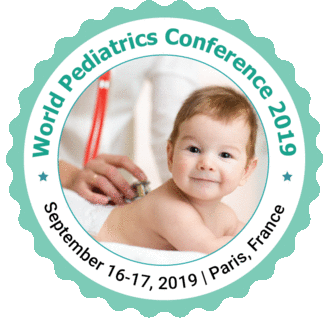
Sohail Daniel
University of Cambridge, United Kingdom
Title: KAT6A syndrome: Presentation and profi le
Biography
Biography: Sohail Daniel
Abstract
Intellectual disability (ID) affects ~1% of children worldwide, with 25-50% of cases thought to result from a monogenetic cause. However, as a result of a nonspecific clinical phenotype, many go years without definitive diagnosis. KAT6A syndrome is a multi-system disorder resulting from a variant form of the KAT6A gene, which codes a Lysine Acetyltransferase protein. It functions to epigenetically regulate the expression patterns of genes involved in development and organogenesis. KAT6A syndrome has been identified as a major cause of ID. There has, in the past few years, been a rapid increase in the number of diagnoses. This is likely due to the heightened use of whole exome sequencing (WES), which is an effective means of diagnosing patients that carry de novo mutations. Despite this, the full extent of the phenotype has not been characterised. We present two individuals with variant forms of the KAT6A gene, who were identified through WES studies. Many of their phenotypic features, although diverse, fit with those reported in other individuals with mutations in the KAT6A gene. These include, but are not limited to: intellectual disability, global developmental delay, microcephaly, craniofacial dysmorphism, oromotor dyspraxia, GI complications, cardiac anomalies, ocular anomalies and abnormal muscle tone. We explore possibilities of how the variant forms of the KAT6A gene produce the clinical phenotype, and why there is such variability in the severity of presentation. A more focussed diagnostic criteria and increased awareness of the syndrome would facilitate more diagnoses, aiding early management, treatment and support.

